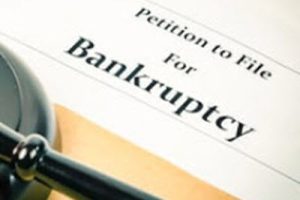Author Archives: Jessica Holguin

Biden Mulls Partial Student Loan Forgiveness
The President might or might not issue an executive order canceling $10,000 in student debt for some borrowers. This issue is a contentious one for Biden. Many politicians oppose broad student loan relief on cost grounds while others press hard for it regardless of the cost. So, the President is trying the middle ground…. Read More »

Can I Still Buy A House With Bankruptcies?
Credit score is usually the most important factor in a home mortgage application. Filing bankruptcy lowers your score, but for most people, the effect is negligible. That’s because, mostly due to multiple late payments and charge-offs, most people who file bankruptcy already have poor credit scores. Additionally, most creditors dislike people who bury their… Read More »

Using Bankruptcy To Recover From COVID-19
2020 coronavirus lockdowns triggered the biggest economic slowdown since the Great Depression. Unemployment reached almost unheard-of levels and business activity slowed to a trickle. A few banks, landlords, and other creditors offered some relief. But for the most part, moneylenders demanded on-time payments as if nothing had happened. Coronavirus lockdowns are now a thing… Read More »

Will Filing Bankruptcy Stop IRS Debt?
Although the IRS is a federal agency, for bankruptcy purposes, it’s basically just another unsecured debt collector. As a result, the Automatic Stay applies to IRS debt. When people file bankruptcy, the IRS cannot garnish your wages, file a credit or property lien, or take any other adverse action. IRS pressure and threats force… Read More »

A Guide To Bankruptcy And Buying A Vehicle
The average lifespan for a new car is about eight years. A bankruptcy filing remains on a credit report for a minimum of seven years. So, most people who file bankruptcy may need a new vehicle before their credit history reports are fully restored. Additionally, people who file Chapter 13 and drive used cars… Read More »

Which Is Better, Chapter 7 Or Chapter 13?
Both major kinds of consumer bankruptcy are designed to give distressed debtors, like you, a fresh start in life. Stopping creditor harassment, up to and including foreclosure or repossession, protecting assets, and discharging (forgiving) debts are the three cornerstones of this fresh start. As outlined below, neither chapter is “better” than the other one…. Read More »

Bankruptcy And Your Security Clearance
Thousands of people work at Camp Atterbury, Grissom Air Reserve Base, and other military installations in Indiana. Thousands of other people work as military contractors, supporting the servicemembers at these and other military installations. Many of these individuals need a high security clearance to keep their jobs. A persistent myth holds that filing bankruptcy… Read More »

Protecting Your Social Security Benefits In Bankruptcy
Since the Social Security Act became law in the 1930s, Social Security has grown into one of the largest government programs ever. Almost seventy million people receive Social Security payments each year. These recipients include age-based Social Security Income payments and health-based Social Security Disability payments. Typically, these families count on Social Security benefits… Read More »

Top Five Reasons People File Bankruptcy In Illinois
In general, people file bankruptcy in Illinois to stop adverse creditor actions, like repossession and foreclosure, eliminate debt, and basically get a fresh start. The specific reasons vary, as outlined below. But for the most part, these specific causes are beyond the debtor’s control. The causes of severe financial stress might be beyond your… Read More »

Do I Qualify For Chapter 7 Bankruptcy?
Everyone experiences financial stress from time to time. A significant number of people experience severe financial stress. A fourth of Americans suffer from Post Traumatic Stress Disorder type symptoms because of financial stress. These symptoms include depression, anger, and sleeplessness. Mostly because of these emotional symptoms, which make it difficult to function at work,… Read More »
